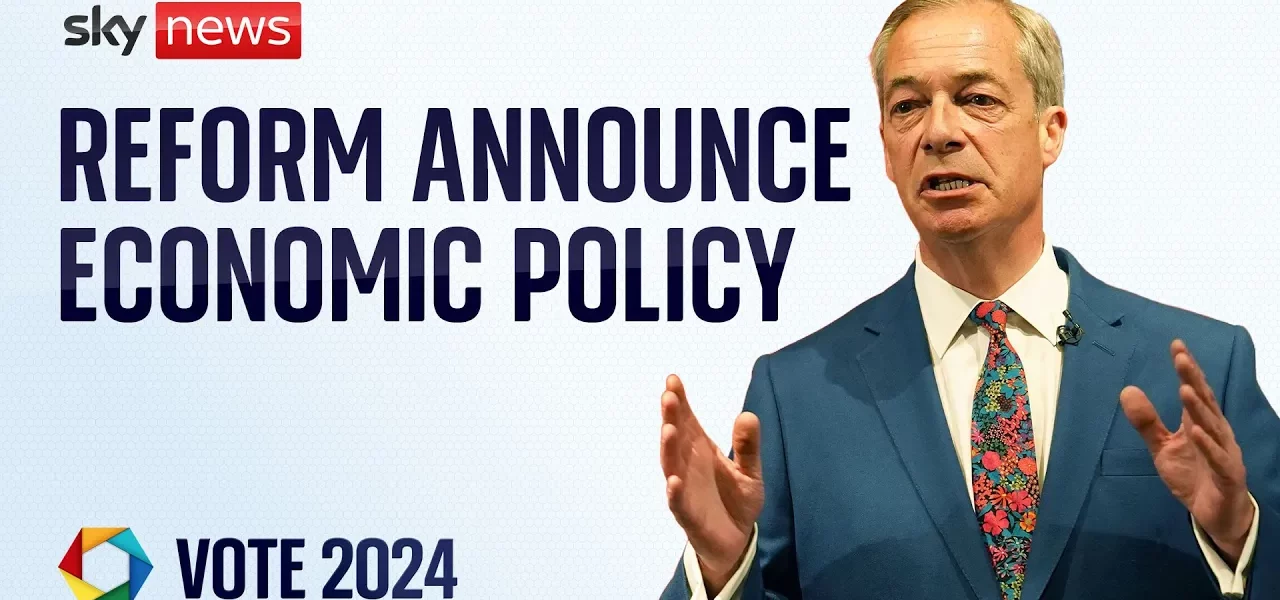Reform UK’s Press Conference on the Economy

Welcome to the detailed coverage of Reform UK’s recent press conference, where they addressed pressing issues surrounding the British economy, tax burdens, and proposed reforms aimed at alleviating financial strains on households. This article delves into the key points raised, the proposed policies, and the implications for the future of the UK economy.
Introduction
The recent press conference conducted by Reform UK highlighted urgent economic concerns facing British households. With the current government imposing the highest tax rates in 70 years, Reform UK emphasizes the necessity of reducing taxes and stimulating economic growth. This article provides an in-depth analysis of the conference, focusing on key proposals, the rationale behind them, and their anticipated impact on the economy and society.
The Burden of Taxation
At the core of Reform UK’s message is the assertion that British households are under significant financial pressure due to high taxation levels. The spokesperson articulated that:
- The current tax burden is suffocating citizens, with an increase in taxes seen over the last 14 years under the Tory government.
- Many individuals feel they are struggling to breathe under the weight of these taxes, which have reached unprecedented levels.
This acknowledgment sets the stage for Reform UK’s proposed solutions, emphasizing the need for a fundamental shift in tax policy.
The Great British Tax Cut
Reform UK introduced what they termed the “Great British Tax Cut,” aimed at significantly changing the current taxation framework. Key aspects of this proposal include:
Raising the Income Tax Threshold
One of the cornerstone proposals is to raise the income tax threshold from £12,570 to £20,000. This adjustment is projected to:
- Free approximately 7 million individuals from paying any income tax.
- Provide households with an additional £1,500 annually, equating to nearly £30 per week.
Encouraging Employment
By lifting the income tax threshold, Reform UK aims to incentivize work, making the transition from benefits to employment more appealing. They argue that:
- Employment is beneficial for mental health and community engagement.
- Reducing the tax burden will encourage more people to seek work, benefiting the economy.
Funding the Tax Cuts
Addressing concerns about funding these tax cuts, the spokesperson proposed a rearrangement of how the Bank of England manages interest payments on quantitative easing. They highlighted the following points:
Understanding Quantitative Easing
The argument presented was that the Bank of England has printed over £800 billion, and the interest on this amount is a significant burden on taxpayers. Key points include:
- Current interest payments on this debt amount to about £35 billion annually, impacting public finances.
- Reforming how these payments are managed could free up funds to support tax cuts.
Critique of Current Monetary Policy
The spokesperson criticized the Bank of England’s approach to quantitative tightening, arguing that:
- This strategy has resulted in substantial losses for taxpayers, approximately £50 billion last year.
- Such practices are viewed as gross negligence that should be addressed for the benefit of ordinary citizens.
Supporting Small Businesses
Reform UK also addressed the challenges faced by small businesses, emphasizing that regulatory burdens must be reduced. They proposed:
Lifting the VAT Threshold
Currently set at £90,000, the party suggests raising the VAT threshold to £50,000, which would:
- Provide significant relief for small businesses.
- Encourage entrepreneurial activities and job creation.
Reducing Regulatory Burdens
In addition, the abolition of complex regulations, such as IR35, is proposed to ease the operational burden on small businesses. The rationale includes:
- Eliminating unnecessary compliance costs.
- Promoting a healthier business environment that fosters growth.
Conclusion
Reform UK’s press conference presented a bold vision for the future of the British economy, focusing on tax cuts, supporting small businesses, and addressing the burdens of current fiscal policies. The proposed changes aim to alleviate financial pressure on households and stimulate economic growth. As public sentiment shifts and the party gains momentum in the polls, it remains crucial for citizens to engage with these proposals and consider their potential impact. We invite readers to explore further discussions on economic reform and engage with the ongoing dialogue about the future of the UK economy.
For more insights, visit our related articles on tax reform strategies and economic growth initiatives.
“`




